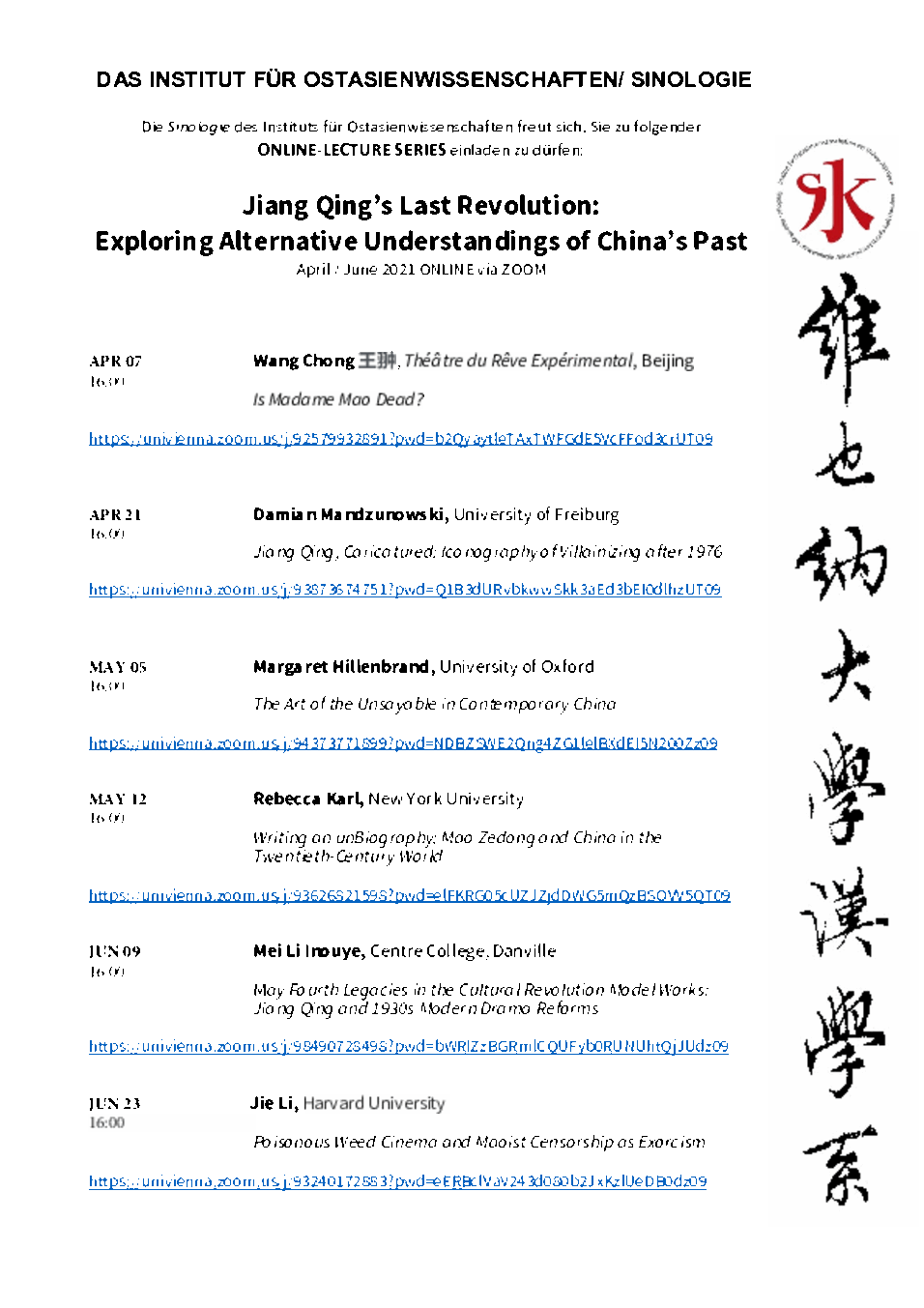Jiang Qing’s Last Revolution: Exploring Alternative Understandings of China’s Past
Organised by Silvia Salino
In recent years, Jiang Qing has attracted academic attention, with Tani Barlow’s “Jiang Qing, Seriously” (2017) complaining about the absence of pertinent questions about Madame Mao’s political role, which has characterized the historiography of modern China. While it is true that Jiang Qing “has been made inessential historiographically”, as Barlow argues, it is also true that she has left astonishing traces in various forms of cultural records.
The many biographies of Jiang Qing written since her arrest in 1976, with their constant re-construction of the subject, tell the reader that Jiang Qing is both well-known and mysterious. In offering a range of perspectives through which to look at Jiang Qing anew, her afterlives engage with some very pertinent questions: what did she think? How did she commit to the revolution? How did she ascend to power? These questions about the ‘unutterable’ (because it / she /her story was made so in the PRC) have somehow structured the creation of all her biographies, telling us that there are hidden (hi)stories that still need to be told.
The Cultural Revolution itself is a contested past, and the ongoing work to bring missing aspects to the surface as well as the heterogeneity of its narratives demonstrate, on the one hand, the impossibility of reaching a univocal interpretation of the past and, on the other hand, the importance of always asking new questions.
The lecture series “Jiang Qing’s Last Revolution: Exploring Alternative Understandings of China’s Past” showcases talks from specialist academics and practitioners speaking on subjects that are relevant to the study of Jiang Qing and some core events from China’s past. Calling for a radical change of perspective – by adapting the title of MacFarquhar and Schoenhals’s famous book, Mao’s Last Revolution – the lecture series is an attempt to explore and reflect on alternative ways of looking at the past, which encourage us to gaze anew at what appears to be already known.
Invited Speakers:
Wednesday, 07.04.2021 16:00 h
Wang Chong 王翀, Theatre Director, Founder of Théâtre du Rêve Expérimental, Beijing.
Wednesday, 21.04.2021 16:00 h
Damian Mandzunowski, PhD Candidate, University of Freiburg.
Wednesday, 05.05.2021 16:00 h
Margaret Hillenbrand, Associate Professor of Modern Chinese Literature and Culture, University of Oxford.
Wednesday, 12.05.2021 16:00 h
Rebecca Karl, Professor of History, New York University.
Wednesday, 09.06.2021 16:00 h
Mei Li Inouye, Assistant Professor of Chinese, Centre College, Danville.
Wednesday, 23.06.2021 16:00 h
Jie Li, John L. Loeb Associate Professor of the Humanities, Harvard University.
Details zu jedem Termin sowie den dazugehörigen Zoom Link finden Sie jeweils Woche vor dem Vortrag auf unserer Homepage direkt unter dem Punkt "Veranstaltungen".
Wir freuen uns auf Ihre Teilnahme!
Bei Fragen wenden Sie sich bitte direkt an an die Organisatorin Frau Salino unter silvia.salino@univie.ac.at

